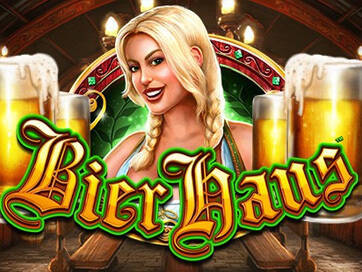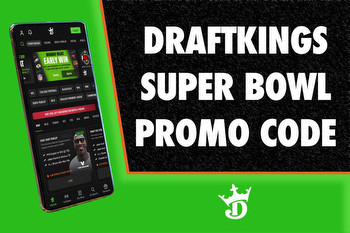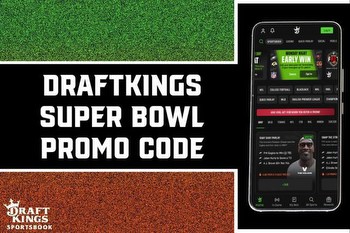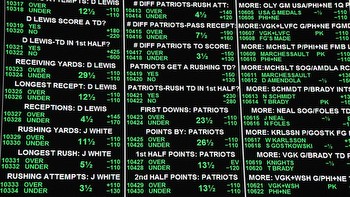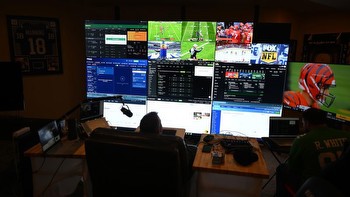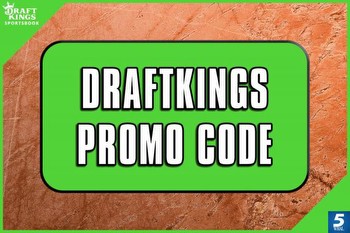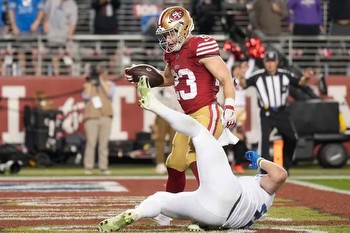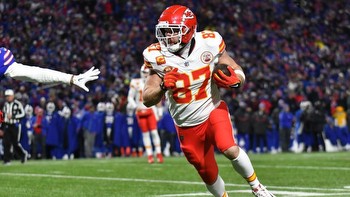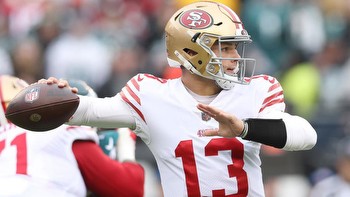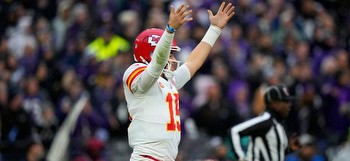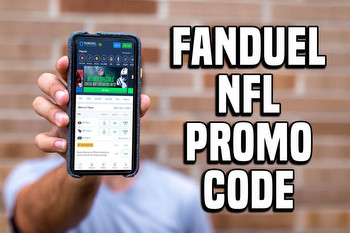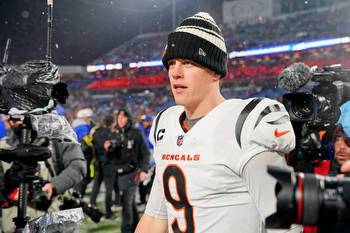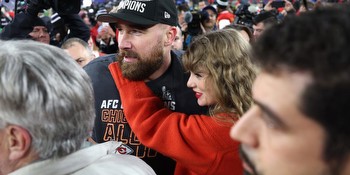Super Bowl the high holy day of sports betting for addicts
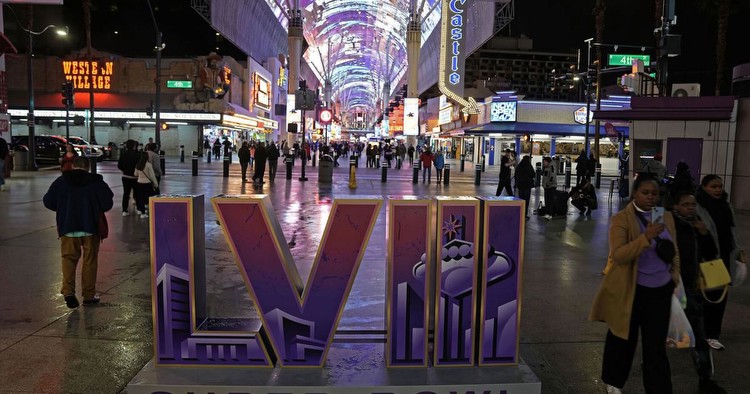
As soon as the Detroit Lions went up 24-7 over the San Francisco 49ers in the NFC Championship game two weeks ago, a cash-out offer popped up on my FanDuel sports book app for $372.09.
Not bad for my $20 parlay bet, picking the Lions to beat the 49ers and three other wagers: the Kansas City Chiefs to beat the Baltimore Ravens, and Travis Kelce and Jahmyr Gibbs to score touchdowns.
All I needed was the Lions to continue their dominance over the 49ers and squeak out a win for me to win $524.73, which would make up for my losing betting season on the NFL and college football this past season.
At halftime, I excitedly sent texts to two of my friends, asking if I should take the cash-out or let my bet ride. The difference was about $150, just enough to trigger my deepest flaw with gambling: greed.
One friend told me to let my bet ride. There’s no way the Lions could blow such a big lead. The other friend told me to take the “cash guarantee,” just in case they do. It was a no-brainer decision for the casual fan, magically turning $20 into $372 in just a few riveting, action-packed hours.
What did I do? I let it ride. My decision was based purely on greed, not on my love of the Lions or my doubts about the 49ers. As you know, San Francisco came back to win on what was described as an “epic failure” by the Lions. I didn’t win a dime. I was crushed. And ashamed of myself.
“That’s why it’s called gambling,” another friend told me with a smirk.
“I know all too well,” I told him.
I’ve had a gambling spirit since my teenage years, when I wagered bets on football games, illegally, with a local bookie in my hometown, Gary Indiana. His name was Al, a short Greek man with a side pocket of “football cards,” as they were called. I gambled whatever I could afford during the football season. I won a few. I mostly lost. I didn’t care. I loved the thrill.
When Indiana legalized sports betting in 2019, I felt like a kid on Christmas morning. That first day in early September felt like a high holy day as I sped to Blue Chip Casino in Michigan City. There, I stood in line behind none other than Chicago Bears legend Brian Urlacher to place a bet at the casino’s new FanDuel sportsbook section.
I interviewed him for a newspaper column about his playing days and his sports betting interest. He was kinder than I expected, even signing a football for me for my son in law.
We both bet on the Bears to beat the Green Bay Packers. We both lost. I’ve been losing sports bets ever since on my mobile sports book apps. Hundreds of them actually. I wager mostly small bets, $5 and $10, hoping that my long-shot parlays win enough to keep me even. It didn’t happen this past season. One word explains it all: Greed.
This is how countless sports books and online apps have become a multi-billion dollar enterprise every year with 175 million U.S. adults able to access a legal, regulated betting option. Nearly 40 states now allow sports betting in some form, led by FanDuel, DraftKings and now ESPN Bet. It’s almost impossible to not see their online ads, TV commercials and “free bet” offers, which turn out to be anything but free. Trust me, I’ve tried them all.
Giving free bets to stupid and greedy gamblers like me is like giving free vaping devices to gullible teenagers. Big Gambling is brilliantly — and diabolically — following the marketing genius of Big Tobacco, using greed instead of nicotine to hook its customers.
To be clear, I’m not a year-round gambler. I don’t bet on cards, dice, roulette or slot machines. I’m a sports gambler, with an affection (or affliction) for only football.
My betting season ends on Super Bowl Sunday, which is not only the high holy day of the NFL season, and a national holiday of sorts in our country. It will be the pinnacle of the sports betting season — in Las Vegas! — with Americans projected to bet $1.3 billion on this game alone, a jump of almost 20% from last year, according to Legal Sports Report.
Roughly 70 million viewers are expected to place wagers on Sunday’s big game, with the point spread hovering around 2.5 points against the 49ers. But it’s the “prop bets” that allow casual gamblers to wager money on all sorts of things beyond the game’s final score.
Will Taylor Swift attend to watch her gladiator hero, Travis Kelce? Will the first score be a touchdown or field goal or safety? Will total penalties be over or under 10.5? Will Chiefs QB Patrick Mahomes rush for more than 25 yards? Will Christian McCaffrey score two TDs?
These prop bets are endless. Many of them will be coming from true-blue gambling addicts who can resist anything but temptation. For these poor saps, the Super Bowl is a "gateway" event that can lead to a full-blown gambling addiction throughout the year. All they crave is that one big bet to come through, wipe their debt clean, and then they can quit for good. Yeah, right.
Two weeks ago, after I lost that parlay bet, I was given a $25 free bet by FanDuel, which I used to place a long-shot parlay wager on the Super Bowl to win $11,898. Will it hit? Of course not. But hey, if I win, I would not only break even for the season, but I’d be set up to place more stupid, losing bets for years to come.
Why did I place it? The same reason I didn’t cash out that bet on the Lions —— greed.
[email protected]. Find him on Facebook and other socials. Opinions are those of the writer.
